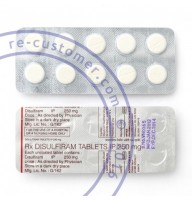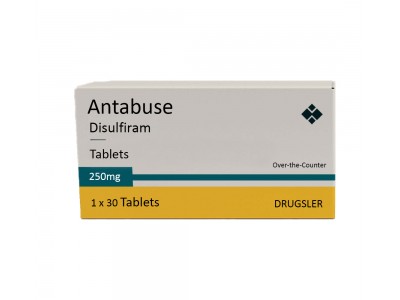Introduction to Alcohol Dependence and Treatment Options
Alcohol dependence is a serious health condition that affects millions of individuals worldwide. Treatment often includes various medications and therapies, and one common treatment is Antabuse (Disulfiram). However, many individuals seek alternatives due to side effects, personal preferences, or the need for more tailored solutions. In this article, we will explore several alternatives to Antabuse for managing alcohol dependence and discuss other available treatment options for alcohol addiction.
Understanding Disulfiram and Its Role in Alcohol Addiction
Disulfiram, marketed under the brand name Antabuse, is a medication designed to support individuals in their efforts to remain sober. It works by causing a severe reaction when alcohol is consumed, making the individual feel extremely ill. While effective for some, many people find the side effects or the discomfort associated with the medication unbearable. For these individuals, exploring other medications for alcohol abuse becomes necessary.
Alternatives to Antabuse (Disulfiram)
Fortunately, there are several non-disulfiram alcohol treatments that can help manage alcohol dependence. These alternatives offer different mechanisms of action, and many have fewer or less severe side effects compared to Antabuse.
1. Acamprosate
Acamprosate is a widely used medication in the treatment of alcohol dependence. It works by balancing the brain's neurotransmitters, helping to reduce cravings for alcohol. Acamprosate is typically used after detoxification to maintain long-term sobriety. It is considered one of the best alcohol recovery medications available today.
2. Naltrexone
Naltrexone is another effective medication used to treat alcohol addiction. It works by blocking the euphoric effects of alcohol, making drinking less rewarding. This medication is often prescribed to help individuals reduce alcohol consumption or remain completely abstinent. Many patients consider it one of the most effective alcohol dependence medications.
3. Topiramate
Topiramate, commonly used as an anticonvulsant, has shown promise as a treatment for alcohol dependence. Research suggests that it can help reduce alcohol cravings and decrease the likelihood of relapse. Topiramate is an alternative that may be recommended for individuals seeking alcohol abuse treatment options without using disulfiram.
4. Baclofen
Baclofen is a muscle relaxant that has been studied for its potential to treat alcohol addiction. It works by calming the central nervous system, reducing cravings, and promoting abstinence. Though more research is needed, Baclofen has shown promising results as an alternative treatment for alcohol dependence.
5. Behavioral Therapies and Support Programs
Along with medications, psychological treatments and support programs play a crucial role in treating alcohol dependence. Cognitive-behavioral therapy (CBT) is one of the most effective therapies, helping individuals understand and change the thoughts and behaviors that contribute to alcohol abuse. Many people find that combining therapy with best alcohol addiction medications provides the best results in their recovery journey.
6. Support Groups and Alcoholics Anonymous (AA)
Support groups such as Alcoholics Anonymous (AA) are essential components of long-term recovery. These groups provide individuals with a supportive community of others who are also striving to remain sober. For many people, participating in an AA group, along with medication therapy, is an integral part of their success in overcoming alcohol dependence.
Conclusion: Exploring the Best Options for Recovery
While Antabuse (Disulfiram) can be an effective treatment for alcohol dependence, it is not the only option available. Many people benefit from exploring alternatives to Antabuse that may better suit their needs, lifestyle, or medical condition. Medications such as Acamprosate, Naltrexone, and Topiramate, combined with behavioral therapies and support groups, can provide effective solutions for individuals seeking recovery from alcohol addiction.
If you or someone you know is struggling with alcohol dependence, it is essential to consult with a healthcare professional to determine the most appropriate treatment plan. With the right combination of therapies, medications, and support, overcoming alcohol addiction is possible, and a healthier, sober future can be achieved.

